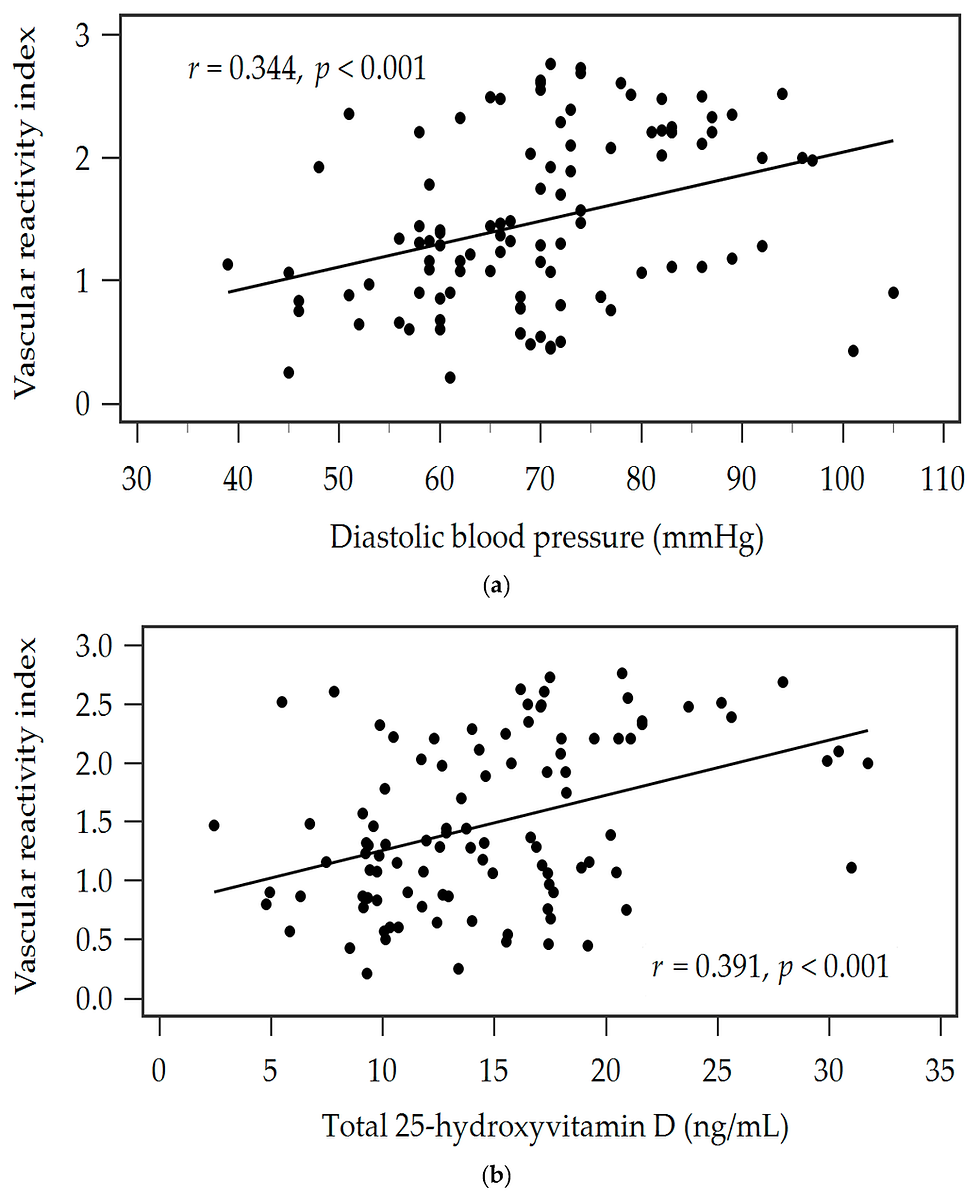Association between Serum Indoxyl Sulfate Levels and Endothelial Function in Non-Dialysis...
- Jan 9, 2023
- 1 min read
Association between Serum Indoxyl Sulfate Levels and Endothelial Function in Non-Dialysis Chronic Kidney Disease
Chih-Hsien Wang, Yu-Hsien Lai, Chiu-Huang Kuo, Yu-Li Lin, Jen-Pi Tsai, Bang-Gee Hsu
Toxins (Basel) 2019 Oct 11;11(10):589.
Abstract
Indoxyl sulfate (IS), a product metabolized from tryptophan, is negatively correlated with renal function and cardiovascular diseases in patients with chronic kidney disease (CKD). We investigated the association between serum IS levels and endothelial function in patients with CKD. Fasting blood samples were obtained from 110 patients with stages 3-5 CKD. The endothelial function, represented by vascular reactivity index (VRI), was measured non-invasively using digital thermal monitoring. Serum IS levels were determined using liquid chromatography-mass spectrometry. Twenty-one (19.1%), 36 (32.7%), and 53 (48.2%) patients had poor (VRI < 1.0), intermediate (1.0 ≤ VRI < 2.0), and good (VRI ≥ 2.0) vascular reactivity. By univariate linear regression analysis, a higher prevalence of smoking, advanced age, higher systolic, and diastolic blood pressure (DBP), elevated levels of serum phosphorus, blood urea nitrogen, creatinine, and IS were negatively correlated with VRI values, but estimated glomerular filtration rate negatively associated with VRI values. After being adjusted by using multivariate stepwise linear regression analysis, DBP and IS levels were significantly negatively associated with VRI values in CKD patients. We concluded that IS level associated inversely with VRI values and had a modulating role in endothelial function in patients with stages 3-5 CKD.
Keywords: chronic kidney disease; digital thermal monitoring test; endothelial function; indoxyl sulfate; vascular reactivity index.
Read Full Text Here: https://www.mdpi.com/2072-6651/11/10/589



![Lipoprotein(a) levels predict endothelial dysfunction in maintenance hemodialysis patients: evidence from [VENDYS] vascular reactivity index assessment](https://static.wixstatic.com/media/dac531_5285607cc591409a9d83746f042af7c6~mv2.png/v1/fill/w_980,h_980,al_c,q_90,usm_0.66_1.00_0.01,enc_avif,quality_auto/dac531_5285607cc591409a9d83746f042af7c6~mv2.png)
Comments